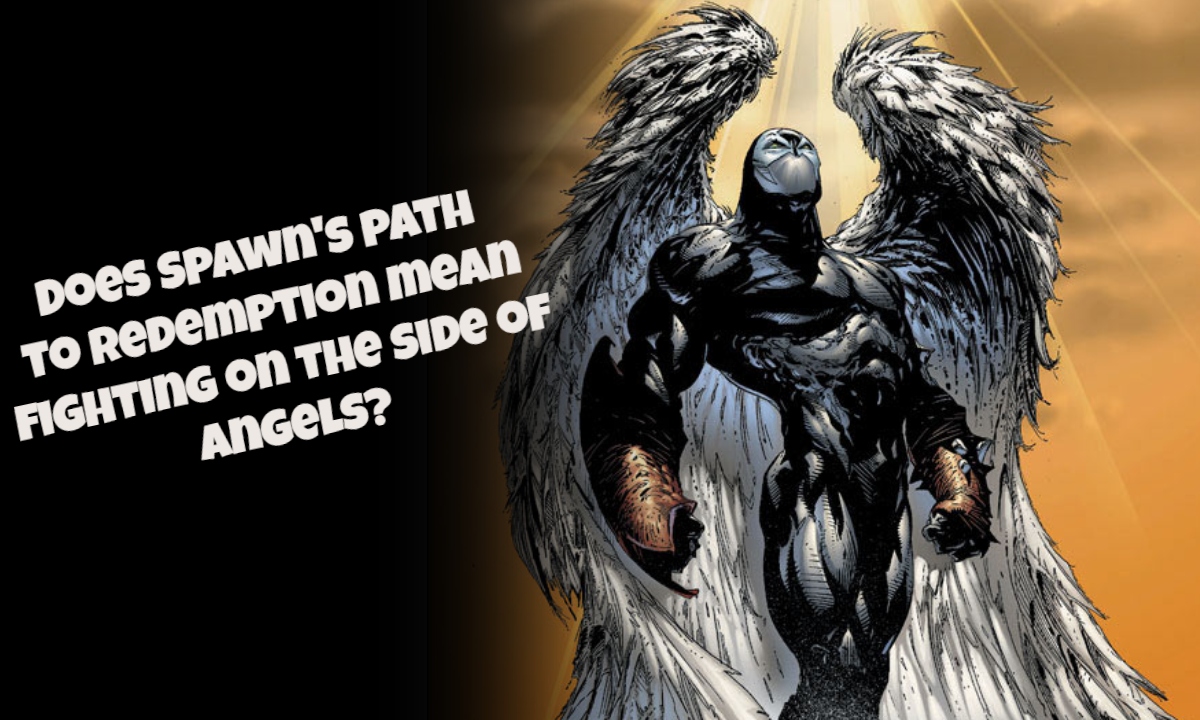
Tabletop gaming is a booming industry, and there is a simple reason why: variety. Games today can range in complexity and price across a wide spectrum, and they nearly offer their own unique combination of mechanics, art, and theme to truly provide something for everyone, depending on interests.
As LRM Online moves into 2019, we will begin a series of articles focusing on tabletop gaming to help educate players of all types—from those completely new to the genre to seasoned veterans—about new releases and old gems. To start, we offer Part I of our Geek Gaming Gift Guide below, which focuses on physically larger titles, many of which were featured at 2018 PAX Unplugged, an annual tabletop convention in Philadelphia. If you are interested in purchasing any of the games, each title is linked to an appropriate online shop for quick access. The listing is in alphabetical order. Enjoy!
8Bit Box by Iello
Price: ~$35.00
Players:3 to 6
Playtime:15 to 40 minutes (depending on game)
Perfect for: Family game night, especially with players who love old video games.
8bit is all about theme. The box and components replicate nostalgic video games, including cardboard controllers and small cube “pixels” that represent items. 8bit actually contains three games, all of which play slightly different. For example, Pixoid is an homage to Pac-Man, where one player plots their movements on a board while the others give chase. Outspeed is a racing game where players secretly choose their actions, and the collective choices have impacts for all. These games are simple to set up and incredibly fun to play making this a clear winner for a holiday gift. Expansion games coming soon!
Dice Settlers by Board&Dice
Price: ~$50
Players:1 to 4
Playtime:90 minutes
Perfect for: Gamers who have mastered Settlers of Catan and now want something more complex and expansive
In Dice Settlers, players strategically use dice to take a variety of actions that will help them win victory points. Actions might include laying tiles to harvest more resources, building tents or villages to score points, or even increasing the amount of dice they’ll have at their disposal on future turns. What makes Dice Settlers so interest is the multitude of paths players can choose in order to win. Some players may choose to go “all in” a particular strategy or activity, while others may try a more balanced approach to scoring points. Using dice is a clever way to mix both strategic and a little bit luck to keep the gameplay exciting. The tile placement and resource cultivation mechanics are similar to Settlers of Catan, but Dice Settlers offers more complexity.
RELATED: Intimidated By Tabletop Gaming? Here’s An Introductory Guide To Help You Get Started!
Drop It by KOSMOS
Price: ~$26.00
Players:2 to 4
Playtime:20 minutes
Perfect for: Quick family fun for all ages
In Drop It, players literally drop pieces of various colors and shapes into a vertical board (think Connect 4). Depending on where the piece ultimately lands, the player scores points. However, if the piece dropped touches another piece of the same color or shape, they get no points. The higher the stack, the more points players can receive. Drop It is a game with incredibly simple rules, setup, and mechanics, but addictive gameplay suitable for pretty much all ages. Players will be uncontrollably ooh-ing and ahh-ing as they watch the pieces fall.
Evolution by North Star Games
Price: ~$40
Players:2 to 6 players
Playtime:60 minutes
Perfect for: Strategic and science-oriented gamers who don’t mind a little conflict in their gameplay
In Evolution, players manage the various species they control through population size, body size, and traits. Players must carefully manage and balance the amount of food each of their species needs to survive along with their abilities, both offensive and defensive. While all species start out as herbivores, somewhat peacefully jockeying to eat plants, others may become carnivorous. These species have the ability to attack other players to satisfy their appetite for meat. Evolution has incredibly gorgeous artwork, and the gameplay mechanics are an exceptional way to teach younger players about the variables that affect living ecosystems. Furthermore, Evolution has since spawned several spinoff games that provide entirely new experiences built upon its core functionality.
Fog of Love by Hush Hush Projects
Price: ~$45
Players:2 players
Playtime:60 to 120 minutes
Perfect for: Two people who enjoy truly co-operative gameplay and appreciate the fun quirky complexities of navigating a relationship
In Fog of Love, each player is controlling a fictional character. This character has a job, traits, and ambitions that they must adhere to as they enter into and manage a new relationship (the other player’s character). As new situations arise, players must decide how they want to resolve the situation—in a manner that suits them, their significant other, or some sort of compromise in the middle. The selected actions affect the overall health of the relationship as well as the player’s progression towards their personal goals. Fog of Love has one of the most innovative game mechanics currently available as it layers complex action selection onto a very fun theme. While the game boasts it is for lovers of romantic comedy films, the appeal is far broader than that. Fog of Love is very easy to learn and is a super fun and entertaining game for any pair of people who love playing games together.
Gaia by Luma Games
Price: ~$35
Players:2 to 5
Playtime:30 minutes
Perfect for: Family game night, especially with players who love old video games.
In Gaia, players strategically place tiles of various land types to build out a collective island with their opponents. To score points, players may also build cities on the island under the specific conditions of city they are constructing (i.e. a city may HAVE to be on a tile that is next to both a forest and a sea tile). For added complexity, players can opt to play weather cards may either help their cities or give opponents a setback. While gameplay is a little chaotic beyond two people, if you are (or know) a gamer with a partner who often plays in a duet, Gaia is a great game to add to the collection.
Imhotep by Thames & Kosmos
Price: ~$20
Players:2 to 4
Playtime:40 minutes
Perfect for: All ages, especially players who prefer a large amount of strategy in their games
In Imhotep, players strategically take actions and allocate resources to score victory points. The timing and sequencing of the actions are critical, however, as players are competing for the same objectives. The order in which resources are procured, moved, and assigned, can serve to either benefit or thwart various players. Imhotep is incredibly easy to learn, but the variety of different strategies players can employ truly increase its replay value. Furthermore, double-sided boards and expansions change gameplay objectives enough to keep Imhotep fresh over many play sessions. Imhotep was a nominee for the prestigious Spiel des Jahres award for Game of the Year.
Luxor by Queen Games
Price: ~$40
Players:2 to 4
Playtime:45 minutes
Perfect for: All ages and people who like the ability to vary the level of game complexity
In Luxor, players are racing through a temple to both strategically collect sets of treasure cards, but also to be the first to reach the center where bonus points await. The balance between expediency and deliberation (i.e. should a player move slower in an attempt to get the treasure tiles they need to get more victory points) is a simple mechanic that gamers of nearly all ages can understand quickly, but mastering it requires deep thoughtful planning, which keeps Luxor robust and incredibly fun. Furthermore, Luxor has five mini expansions which can drastically increase the complexity of gameplay, giving seasoned gamers a far more engaging experience. That’s the beauty of Luxor, it can be played with family members as young as 6 or modified and scaled for people looking for a greater challenge. Luxor was a nominee for the prestigious Spiel des Jahres award for Game of the Year.
Most Wanted by North Star Games
Price: ~$35
Players:2 to 8 players
Playtime:15 to 35 minutes
Perfect for: A group of gamers at a party looking to keep things lively through bluffing and luck pushing.
Most Wanted is a party game combines strategic action taking with the risk-taking and bluffing components of poker. On a player’s turn, they must decide if they are going to be conservative and build up resources, or will they play a round of simplified poker against other players in order to win victory points? Only the right combination of activity (and cards) will suffice! The player interaction in Most Wanted is a major highlight as people try to read each other’s intentions and schemes. The gameplay is fast and even a little chaotic at times, but it always maintains a good balance given the different actions players can take. A great game for any party.
Quacks of Quedlinburg by North Star Games
Price: ~$55
Players:2 to 4 players
Playtime:45 minutes
Perfect for: Family gamers who enjoy multiple components mixing together to achieve victory points through a combination of using resources strategically while also taking risks for rewards.
In Quacks of Quedlinburg you are a “doctor” who dabbles in less-than-reputable methods. Your main output is various potions made up of different combinations of ingredients. On a turn, a player reaches into their bag of ingredients, revealing things that they can throw in their pot. The order and variance of these ingredients determine both the number of victory points the doctor might be able to score, as well as other resources they may procure for later potions. However, players have to be careful regarding how many ingredients they mix together—higher quantities have the potential to score more points, but too many means the pot overflows and players must suffer the consequences. Quacks of Quedlinburg is the winner of the prestigious 2018 Kennerspiel des Jahres award, which is given annually to a game that is intended for experienced players, but also celebrates creativity and theme, both of which Quacks of Quedlinburg has in abundance.
Raids by IELLO
Price: ~$30
Players:2 to 4
Playtime:40 minutes
Perfect for: Families with players who enjoy strategic resource allocation and long-term planning
In Raids, players control a Viking ship sailing around the board. As the ship moves to various locations, the player can accomplish various tasks in order to score immediate victory points, or prep for activities later that might have greater payoffs. For example, a player might pick up goods that they can sell later or add weapons to fight monsters. The trick is that each ship can only support a finite number of upgrades and/or goods, so players must be strategic about what they carry and where they move. Furthermore, a balancing mechanic means that not all players will have the ability to visit each stop, so people will have to choose carefully what actions are most important to them. This is a really fun game for families that prefer strategy over direct conflict.
Root by Leder Games
Price: ~60
Players:2 to 4 (expansion for up to 6 players coming soon!)
Playtime:40 minutes
Perfect for: Seasoned gamers who enjoy lots of different strategies and styles of gameplay
Root is a completely asymmetrical game, meaning that each player has their unique objectives and style of gameplay. The actions they take, and their path to victory, will be drastically different from everyone else playing. The various combinations of characters (i.e. players) make Root incredibly fun to play, because nearly every configuration results in a different game and strategy. One player focuses on combat, another on engine building, another on resource allocation, and a fourth on diplomacy. Root is a must-own for new and serious gamers alike given how robust the gameplay is.
Spell Smashers by Renegade Game Studios
Price: ~$40
Players:1 to 5
Playtime:45 to 60 minutes
Perfect for: Family game night with people who love words/spelling and fantasy themes
In Spell Smashers, players use the power of words to combat fantastical creatures and outscore their opponents. Players collect letters on cards in order to assemble larger and more valuable words which are then used to battle monsters and score victory points. The fantasy theme is a real draw for this game, as players can also strategically collect power-ups (such as gear, ale, and potions) to give them an advantage over opponents. Spell Smashers has a lot of fun, clever components to make the game a fun addition in the homes of gamers who love to flex their lexicon.
War Chest by AEG
Price: ~$40
Players:2 OR 4 players
Playtime:30 to 60 minutes
Perfect for: Gamer duos (or teams of 2) that enjoy asymmetrical strategy and tactics to outwit their opponent
War Chest has each player (or team of 2) competing to use their set of four warriors strategically to win control of the board in front of them. Each warrior (or unit) card has a special ability in addition to the base actions that all units can take (move, attack, or take control of a space). This asymmetrical nature ensures a great deal of diversity in each game, making players consistently reevaluate and recalibrate their strategy. War Chest also contains a bit of “controlled luck” in that the units that can be activated on a player’s turn are determined by drawing representative tokens out of a bag randomly. Only corresponding units can be used, and the player must also decide both how to use them, and in what order. The balance and variability of War Chest, along some really nice game pieces and easy-to-pick-up mechanics, make the game very engaging.
Warsaw: City of Ruins by North Star Games
Price: ~$60
Players:2 to 4 players
Playtime:60 minutes
Perfect for: Gamers who like building cities through strategic tile-placement and have found memories of Sim-City.
Warsaw: City of Ruins is a game whereby each player is trying to build an optimal city. The city tiles they draft are positioned in a 4 x 3 grid that they create over several rounds. The specific placement of those tiles will determine how much money they receive at the end of each round as well as the number of victory points they will ultimately collect. For example, placing park tiles near residential tiles will yield high bonuses. Conversely, playing industrial tiles will yield immediate benefits, but placing them near homes might have a negative effect. Warsaw: City of Ruins is a great introductory tile-placement game that is simple enough for younger players, but also contains enough strategy to engage more experienced gamers. The gameplay is easy to pick up and quick to execute. The game also gets bonus points for being very easy to clean up and store due to a very efficient in-box storage system.
If you have any questions about any of the games featured in this article, please post them in the comments below! Stay tuned for Part II of our Geek Gaming Gift Guide focused on Stocking Stuffers, coming soon!
Don’t forget to share this post on your Facebook wall and with your Twitter followers! Just hit the buttons on the top of this page.

 FOR FANBOYS, BY FANBOYS
Have you checked out LRM Online’s official podcasts and videos on The Genreverse Podcast Network? Available on YouTube and all your favorite podcast apps, This multimedia empire includes The Daily CoG, Breaking Geek Radio: The Podcast, GeekScholars Movie News, Anime-Versal Review Podcast, and our Star Wars dedicated podcast The Cantina. Check it out by listening on all your favorite podcast apps, or watching on YouTube!
Subscribe on: Apple Podcasts | Spotify | SoundCloud | Stitcher | Google Play
FOR FANBOYS, BY FANBOYS
Have you checked out LRM Online’s official podcasts and videos on The Genreverse Podcast Network? Available on YouTube and all your favorite podcast apps, This multimedia empire includes The Daily CoG, Breaking Geek Radio: The Podcast, GeekScholars Movie News, Anime-Versal Review Podcast, and our Star Wars dedicated podcast The Cantina. Check it out by listening on all your favorite podcast apps, or watching on YouTube!
Subscribe on: Apple Podcasts | Spotify | SoundCloud | Stitcher | Google Play



